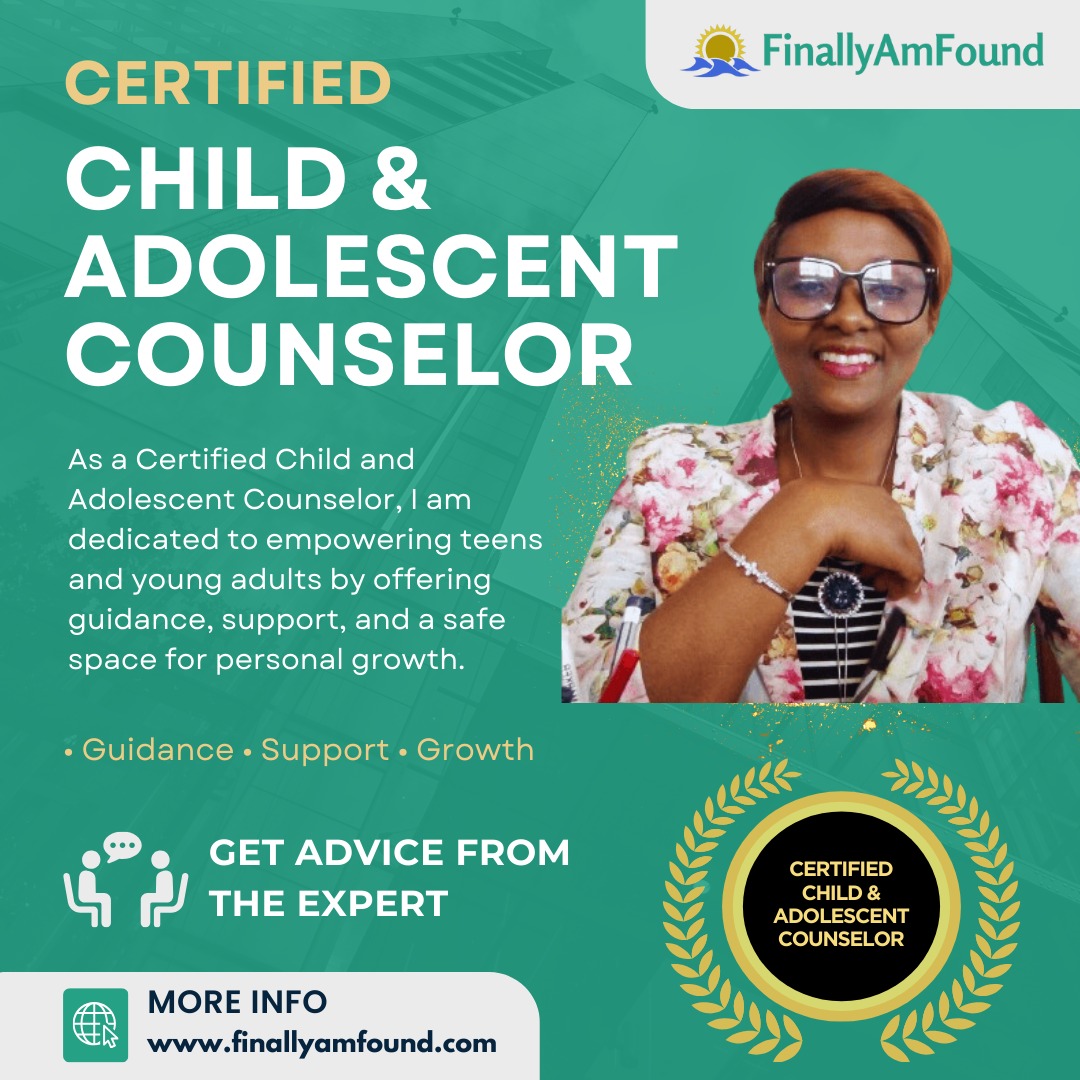Self-hatred is an intense and destructive emotion that many individuals, particularly young people, experience at some point in their lives. While it is normal to feel this way occasionally, when these feelings persist, it becomes crucial to take action.
The Nature of Self-Hatred
People experiencing self-hatred often feel inadequate, guilty, and suffer from low self-esteem. They continually compare themselves to others, focusing on their perceived shortcomings and believing they will never be “good enough.”
A Scenario: Kiptoo’s Story
There was a young man named Kiptoo who had always struggled with self-hatred. From a young age, he constantly compared himself to others, always finding himself lacking. He believed that he was not smart enough, not attractive enough, and not talented enough to measure up to his peers.
As Kiptoo grew older, these negative thoughts became more frequent and intense. He would spend hours in front of the mirror, scrutinizing his appearance and focusing on his flaws. Social situations became daunting as he feared judgment and rejection. Even simple tasks became overwhelming due to his constant self-doubt and criticism. His first attempt at finding solace led him to the company of peers who felt just as miserable, and together they sought comfort in alcohol.
Despite his best efforts, Kiptoo couldn’t shake these negative thoughts and feelings. He tried to think positively, but his mind always drifted back to self-hatred. He attempted to ignore these thoughts, but they only grew louder and more insistent. Seeking help felt impossible as he was too ashamed or scared to open up to anyone.
A Turning Point
One day, Kiptoo stumbled upon a blog where other young people shared their experiences with self-hatred. He read stories of individuals who had struggled with the same feelings for years and saw how they managed to overcome self-hatred and learn to love themselves.
Inspired by these stories and with the help of a counsellor, Kiptoo decided to take action. He began by acknowledging his negative thoughts and feelings, recognizing that he was not alone in experiencing them. Kiptoo started challenging these thoughts, replacing them with positive and uplifting ones. He focused on his strengths and accomplishments instead of his weaknesses and failures. Additionally, Kiptoo started to take care of himself physically, spiritually, and mentally by eating well, exercising, practising self-care, and trusting God with his journey.
The Journey to Self-Love
Slowly but surely, Kiptoo began to see a change in himself. He started to feel more confident and self-assured and began to enjoy life more. While he still had moments of self-doubt and insecurity, he no longer let these thoughts consume him. Kiptoo had learned to love himself, flaws and all, realizing that these imperfections made him unique.
In the end, Kiptoo recognized that self-hatred was a destructive and pointless emotion. He had wasted so much time and energy hating himself when he could have been living his best life. Kiptoo learned that self-love and self-acceptance were the keys to happiness and fulfilment, and he was determined never to let self-hatred take over his life again.
Self-Hatred: A Common Struggle
Kiptoo’s journey toward cultivating self-love proved to be a formidable undertaking, yet undeniably rewarding. He acquired the ability to acknowledge and embrace his true self, directing his attention toward his strengths and achievements instead of fixating on his shortcomings and setbacks. This revelation underscored the significance of self-love and self-acceptance as fundamental components for experiencing contentment and satisfaction.
Understanding Self-Hatred
Self-hatred is a pervasive and damaging emotional state that can affect people of all ages, especially young people. It is characterized by a deep-seated dislike or even disgust for oneself, one’s actions, and one’s identity. While occasional feelings of self-doubt are normal, persistent and overwhelming self-criticism might indicate a deeper issue that needs to be addressed.
Causes of Self-Hatred
Self-hatred often stems from various factors, including negative experiences, low self-esteem, and a skewed self-perception. Some common causes in young people include:
- Social Media: Constant comparisons to carefully curated online personas can lead to feelings of inadequacy.
- Body Image Issues: Unrealistic beauty standards perpetuated by the media often result in dissatisfaction with one’s appearance.
- Academic Pressure: Excessive focus on grades and performance can erode self-worth, leaving individuals feeling like failures if they pursue different paths.
- Peer Pressure: The desire to fit in can lead to self-doubt and a fear of rejection.
- Family Dynamics: Unhealthy family relationships, such as neglect or abuse, can profoundly impact self-esteem.
- Societal Expectations: Societal emphasis on wealth, material possessions, or social standing can create a sense of worthlessness for those who don’t meet those expectations.
- Public Comments: Remarks about someone’s body, even if well-intentioned, can be hurtful and humiliating, such as “you have grown fat, what are you eating?”
- Trauma of the Past: Experiences of bullying, neglect, and abuse can lead to insecurities about appearance and social interactions.
Overcoming Self-Hatred
While overcoming self-hatred can be challenging, several strategies can help young people manage and reduce these negative feelings:
- Building Self-Esteem: Focus on strengths, achievements, and personal growth.
- Challenging Negative Thoughts: Replace self-critical thoughts with positive affirmations.
- Seeking Support: Talk to a trusted friend, family member, or mental health professional.
- Practising Self-Care: Prioritize physical and emotional well-being through exercise, relaxation techniques, and healthy habits.
- Setting Realistic Goals: Break down larger goals into smaller, achievable steps.
- Limiting Social Media: Reduce exposure to unrealistic comparisons.
- Spiritual Connection: Let God know what you are going through and trust His guidance.
Recognizing Self-Hatred
Recognizing the signs of self-hatred is the first step toward overcoming it. Some indicators include:
- Negative Self-Talk: Constantly criticizing oneself, focusing on failures rather than successes, and comparing oneself unfavourably to others.
- Low Self-Esteem: A consistently negative view of oneself, feelings of worthlessness, and difficulty accepting compliments.
- Avoidance of Social Interactions: Fear of judgment leading to social withdrawal.
- Self-Destructive Behaviors: Engaging in substance abuse, self-harm, or neglecting personal care.
- Perfectionism: Setting unrealistic expectations, avoiding challenges due to fear of failure, and struggling to accept mistakes.
- Isolation: Withdrawal from friends and family, difficulty building relationships, and feelings of loneliness.
- Body Image Issues: Excessive concern with physical appearance, unhealthy dieting, or exercise habits.
- Emotional Instability: Frequent mood swings, difficulty regulating emotions, and feelings of emptiness or hopelessness.
- Depression and Anxiety: Self-hatred can contribute to both of these complex mental health issues.
If you or someone you know is experiencing these symptoms, it’s important to seek help from a mental health professional. They can provide guidance, support, and treatment options.
The Importance of Addressing Self-Hatred
Self-hatred is a complex and harmful emotional state that can severely impact young people’s lives. Understanding its causes, effects, and potential solutions is essential for overcoming it and seeking help to become who you are meant to be.
Prayer for Overcoming Self-Hatred
Heavenly Father,
I come to You today with a heavy heart, burdened by the weight of self-hatred. I acknowledge my shortcomings and the negative thoughts that consume me. Yet, in this moment of vulnerability, I turn to You, seeking Your love, mercy, and healing power.
Help me to see myself through Your eyes, as Your beloved child. Replace the lies I believe about myself with Your truth. Grant me the courage to embrace my imperfections and to find strength in my weaknesses.
Surround me with Your peace and comfort, and guide me towards self-acceptance and love. May Your Spirit renew my mind and heart, transforming negative thoughts into positive affirmations. Help me love myself that I can be able to love others too.
I surrender my struggles to You, trusting in Your perfect plan for my life. Help me to cultivate gratitude and find joy in Your presence. Thank You for Your unfailing love and support.
In Jesus’ Mighty Name, I pray and believe,
AMEN
Hey, I’m Angeline, your RN and founder of Finally Am Found. With a heart for mentorship, I’ve been guiding teens and young adults since 2017. As a Registered Nurse, I blend medical expertise with personal experiences to create a Christ-aligned space for self-discovery. Connect with Angeline on Facebook and let the journey to self-discovery begin!
















